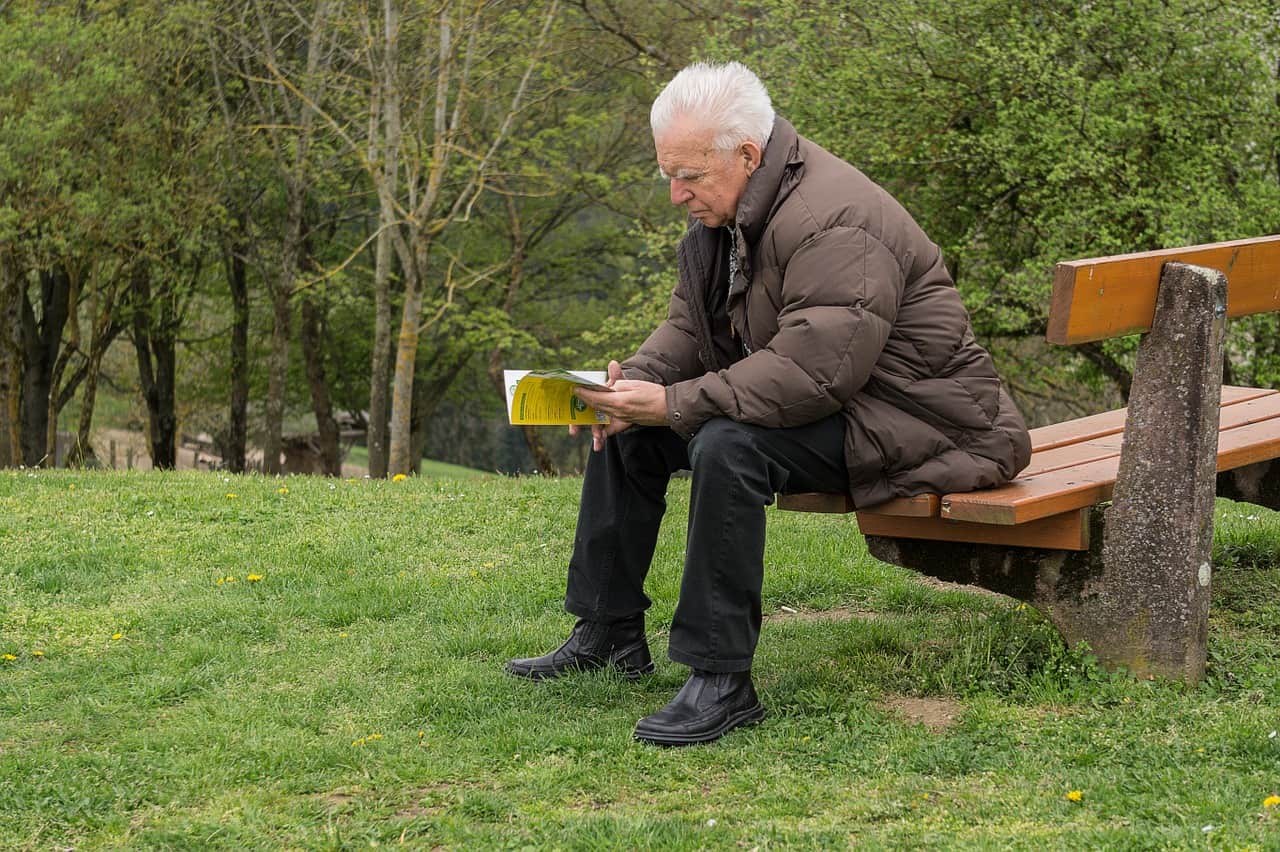If you think about it, vision impacts all aspects of everyday living- including mobility. Poor sight could contribute to a nasty fall which precipitates a slew of health-related problems. Falls are a prime concern of the aging population as these may cause a loss of independence and life-long mobility issues that require intervention or assistance. There is a link between glaucoma and mobility; here’s what you need to know.
January is National Staying Healthy Month, the perfect time to give some thought to your holistic health, including your vision. Are you at risk for glaucoma? If you are over 40, you could be; Glaucoma is a primary cause of blindness of people in this country and is a condition that manifests in damage to your optic nerve. There may be a genetic link to glaucoma, so if your parents had it, you might be at higher risk of having glaucoma, too. If left untreated, glaucoma can lead to blindness in a relatively short time so it is important to visit an eye doctor regularly to have your eye pressure monitored. If getting to your eye appointments is challenging due to physical limitations, call for consultation and mobility solutions to make life easier.
Lighting
Lighting is a common issue among those with glaucoma, and it is a number one reason why many seniors fall in the home. Bilateral glaucoma manifests in trips, bumps, and falls- which can quickly perpetuate into a long-term mobility issue. While good lighting doesn’t prevent glaucoma, it contributes to falling risk among anyone in the senior demographic, so there is a correlation between mobility and Glaucoma.
Gender
More than half, around 60%, of glaucoma cases in the U.S. are women. The number of people with glaucoma is expected to hit over six million by the year 2050, due to population, genetics, and lifestyle markers. This could present a significant healthcare crisis among the older population.
Risks
Are you at risk for glaucoma? You are more at risk if you are of African-American, Irish, Russian, Japanese, Hispanic, Inuit, or Scandinavian ancestry. Some other things that make you more likely to contract glaucoma during your life include:
- If you are over age 40.
- If you have a family history of glaucoma.
- If you already have poor or impaired vision.
- A history of diabetes.
- Taking certain medications, like steroids.
- History of trauma to the eye.
- Medical history, including high blood pressure.
If you have risk factors for glaucoma, it is even more important to have regularly scheduled eye exams, at least once every six months to a year, and have your eyes dilated and eye pressure tested.
Fall Reduction
A fall can create a lot of hurdles for a senior; first, a fall can cause eye trauma that contributes to glaucoma. It can also be a side-effect of the debilitating vision loss caused by glaucoma and increased eye pressure. The key to preventing mishaps and medical conditions of all kinds is fall reduction; i.e. improve lighting, remove obstacles, and wear footwear that provides stability and balance. This is where mobility aids can come in helpful. A grab bar can reduce the risk of slipping and falling in bathrooms or during ADLs; a reaching tool can prevent potential injuries caused by bending over and trying to access things that are just out of your reach. Furthermore, falls can create a loss of independence that can deteriorate mood, mental health, and overall quality of life. The long and short of it is to reduce falls through vigilance and awareness, whether for you or for someone you love.
Mobility Risks
So, let’s consider what happens when your sight is impaired due to undiagnosed glaucoma. First, a fall is more likely to occur- particularly in those that have physical limitations or that are older. Falls can lead to injury, further eye trauma, or infection- including the often- fatal C-Difficile infection, which can be contracted through germs and bacteria all around us. It is safe to say that there are a host of complicated risks associated with a fall due to impaired vision due to glaucoma, both undetected as well as in diagnosed cases.
National Staying Healthy Month in January is a day set aside to encourage and facilitate people to get healthier, through prevention, education, and area resources. It is a time that motivates and inspires us- every one- to do what they can to preserve their health and wellbeing.
Want to stay healthier, longer? Make sure that you visit your eye care professional regularly to be tested and monitored for glaucoma, a leading cause of blindness in this country. What better way to honor National Staying Healthy Month this January than with an examination by your eye doctor or practitioner. Another way to pay tribute to National Staying Healthy Month is with mobility aids and solutions from Pacific Mobility. The link between glaucoma and mobility exists; resolve to do something about it by increasing access and autonomy with mobility aids and equipment today. Call for a no-commitment needs assessment.
President, Husband, Father, Grandfather Graduate of UC Davis- Bio Sci Major- Go Aggies! Jeff has extensive experience in all of Pacific Mobility’s products and services, and specializes in accessibility products as well as stairlifts, ceiling lifts and custom wheel chairs. His hobbies include spending time with family, gardening, mountain biking, exercising and off road motorcycle riding.
24 years as Owner/President of Pacific Mobility Center – selling, installing, and servicing stairlifts, porch lifts, ceiling lifts, pool lifts, handicap ramping, specialty wheelchairs, scooters, power wheel chairs, and other power mobility devices
Certified Environmental Access Consultant since 2008
Licensed General Contractor since 1998
Certified Aging in Place Specialist since 2016
Board Member for Home Access Professionals
Member of Association of Members of the Accessibility Equipment Industry (AEMA)




